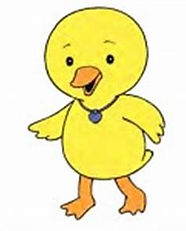
To promote the children's self-esteem and to promote a positive playroom climate as part of the groups continuous improvement to health and wellbeing, we have introduced the PATH's programme which is aimed at preschool and school children.
PATHS lessons will be used regularly throughout the year and will cover a number of different topics.
We will be working on PATHS lessons on a Monday morning in our keygroups and each Monday morning a new child will be selected as Twiggles Special Helper. Twiggles Special Helper will assist with various duties throughout the week and practitioners and children will compliment the excellent job that Twiggles Special Helper will be doing encouraging children to accept and receive compliments. A Compliment Sheet will be completed throughout the week and sent home for parents to help celebrate their child.
As always we start the year by reviewing the rules of our playroom and with the help of the children we produce the Playgroups Golden Rules. Children learn to follow many rules in playgroup and these rules help the children learn new skills. Rules also help children feel more secure because they let the children know what is expected of them. When we are making our rules it is important to explain the reason for rules to the children. This way they will understand why these behaviours are important for example, safety or getting along with others. Children need a physically safe and emotionally secure environment in which to explore and grow. The Golden Rules promotes this kind of environment by fostering prosocial behaviour and providing a predictable routine.
How does the PATHS® Programme help children
The children will be taught to “Stop and Think”, a response that facilitates the development and use of verbal thought. The children are provided with enriched linguistic experiences which will help mediate understanding of self and others. They are also taught to integrate emotional understanding with cognitive and linguistic skills to analyse and solve problems. We encourage the development of verbally mediated self-control over behaviours.
The PATHS® Programme (UK Version) is designed to help children:
develop specific strategies that promote reflective responses and mature thinking skills;
-
become more self-motivated and enthusiastic about learning;
-
obtain information necessary for social understanding and pro-social behaviour;
-
increase their ability to generate creative alternative solutions to problems; and
-
learn to anticipate and evaluate situations, behaviours and consequences.
These skills increase the child’s access to positive social interactions and provide opportunities for a greater variety of learning experiences.
Self-Control
In this section emotions such as anger and frustration are discussed, differentiations are made between feelings (all feelings are OK to have) and behaviours (some are OK and some are NOT OK), and modelling and role-play are utilised to teach children new ways to recognise and control anger. Some methods for helping children to calm down and learn better self-control - the Turtle Technique -Three Steps for Calming Down
STOP, BREATHE, SAY THE PROBLEM AND HOW YOU FEEL.
Emotional Understanding
The lessons on emotional understanding cover approximately 25 different affective states and are taught in a developmental hierarchy beginning with basic emotions (happy, sad, angry, etc.) and later introducing more complex emotional states.
As the ability to label emotional states is a central focus, major emphasis is placed on encouraging such labelling as a precursor for effective self-control and optimal problem resolution.
The children are also taught cues for the self-recognition of their own feelings and the recognition of emotions in others, affective self-monitoring techniques, training in attributions that link causes and emotions, perspective-taking skills in how and why to consider another’s point of view, and information regarding how the behaviour of others can affect oneself.
These lessons include group discussions, role-playing, art activities, biographies, stories and educational games.




